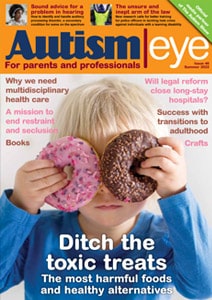The Power of Learning Through Play
By Ifigeneia Mourelatou, Autism Practitioner & ESDM Specialist at Re:Cognition Health
Ifi has a BSc in Psychology and an MSc in Child and Adolescent Mental Health and specialises in early intervention & assessment of infants and toddlers presenting with ASD symptoms. She has extensive experience in coaching, supervising, and supporting families of children with several different developmental difficulties and conditions. She is certified in interventions like Early Start Denver Model (ESDM), Paediatric Autism Communication Therapy (PACT), and several other assessment tools (ADOS-2, CARS-2 etc).
It is no secret that play is learning opportunities for all children either of typical or neurodivergent development. However, it is especially crucial to secure socially enriched experiences for young children whose development seems to differentiate from the typical pathway. Early intervention researchers support that the difficulty or inability of young children in the spectrum to engage in social interactions and relationships can subsequently lead to their family and carers offering less interaction and play opportunities. Some researchers suggest that children with a disability or a developmental delay are not always supported to be included in play experiences. Anyone could potentially leave a child in their ‘bubble’ if they seemed content by themselves and not offer the same stimuli than they would to a child who is naturally curious, motivated, and interested in the social world. To avoid these vulnerable young children having ‘missed’ social learning opportunities which contribute largely to brain development, we need to make sure we maximize them from the beginning of life. These can range from simple social games like singing songs, face to face games (Peekaboo), movement games (chasing, hide-and-seek, dancing) to more advanced play like pretend/imitative play, games with rules, cooperative play, group activities, depending on the child’s developmental level and interests.
Dr. Jack Shonkoff from Harvard University explains how playing with your baby is the most important thing you can do and presents three ways all parents can improve their babies’ brain development:
- Get to know your baby
- Have fun with your baby
- Boost your baby’s brains with games
But what in specific can children learn through play? Play can address multiple developmental and cognitive areas and some of those benefits might include:
- Social-emotional and self-regulation abilities (how a child experiences, expresses, and manages emotions and behaviour, how they maintain their relationships with parents and friends, how they pretend, imitate, take turns, understand rules of games, develop independency)
- Cognitive skills (exploring toys in different ways, knowing what everyday items are for, counting, matching, doing puzzles)
- Communication and Language Development (understanding and developing language, expanding vocabulary, use of gestures, asking and responding to questions, telling stories)
- Physical Development (becoming aware of the physical and social space through senses and motor skills, body awareness, gross motor skills including jumping, kicking, climbing, and fine motor skills including use of utensils, use of pincer grasp etc)
- More academically oriented benefits (like literacy, maths, science, IT skills) in pre-school and school children for which active parent or teacher involvement in play is critical.
But what constitutes a play-based intervention?
Lots of early interventions claim to be play-based but the use of toys as materials does not make an intervention necessarily play-based. Play-based interventions that are respectful to the child’s interests and sensitive to developmental needs have the following characteristics:
The child ‘leads’ the play. The child chooses what and how they play. Child-led play happens for at least for half of the session or more. The adult (parent, play partner, interventionist) shares the same interest as the child and follows the child’s change in focus. The adult does not give instructions to the child and does not try to ‘push’ their own agenda.
The interaction is positive and warm. The positioning, words, and body language between adult and the child is positive. They might imitate one another, and exchange looks and smiles. The adult uses reinforcement to reflect pleasure, social approval, and encouragement.
Play might promote cognitive skills BUT not at the expense of creativity, imagination, freedom, and self-confidence. Confidence and a positive attitude towards learning and ‘natural curiosity’ should be promoted. Confidence helps a child develop the ability to try new things. The adult might want to teach cognitive skills, but this needs to happen in a way that the child is enjoying and is motivated by. Letting the child learn at their own pace and matching the child’s pace helps a child develop a positive attitude to learning and to interacting with other people.
It’s Fun! Fun! Fun! Play should be enjoyable for both play partners. Adults should try to not force certain activities if the child does not want to complete them. Young children (and older individuals as well!) learn when they have fun.
References:
Bray, P., & Cooper, R. (2007). The play of children with special needs in mainstream and special education settings. Australian Journal of Early Childhood, 32(2), 37-42.
Dunst, C. J. (2000). Revisiting “Rethinking early intervention”. Topics in Early Childhood Special Education, 20, 95-104.
Lifter, K., Foster-Sanda, S., Arzamarski, C., Briesch, J., & McClure, E. (2011). Overview of play: Its uses and importance in early intervention/early childhood special education. Infants & Young Children, 24(3), 225–245. https://doi.org/10.1097/IYC.0b013e31821e995c
Rix, J., Paige-Smith, A., & Jones, H. (2008). ‘Until the cows came home’: issues for early intervention activities? Parental perspectives on early years learning of their children with Down syndrome. Contemporary Issues in Early Childhood, 9(1), 66-79.
Rogers, S. J., & Dawson, G. (2010). Early Start Denver Model for young children with autism: Promoting language, learning, and engagement. Guilford Press
Stancheva-Popkostadinova, V. & Zorcec, T. (2017). 14 Play in Early Intervention for Children with Disabilities. In Play development in children with disabilties (pp. 174-180). Warsaw, Poland: De Gruyter Open Poland. https://doi.org/10.1515/9783110522143-016
https://www.cdc.gov/ncbddd/actearly/milestones/index.html
https://www.unicef.org/parenting/child-care/science-of-play
https://www.unicef.cn/en/parenting-site/3-ways-parents-can-improve-baby-brain-development
https://www.bestchance.org.au/blog/the-science-of-play-the-importance-of-play-based-learning/
 Visit our USA website
Visit our USA website





